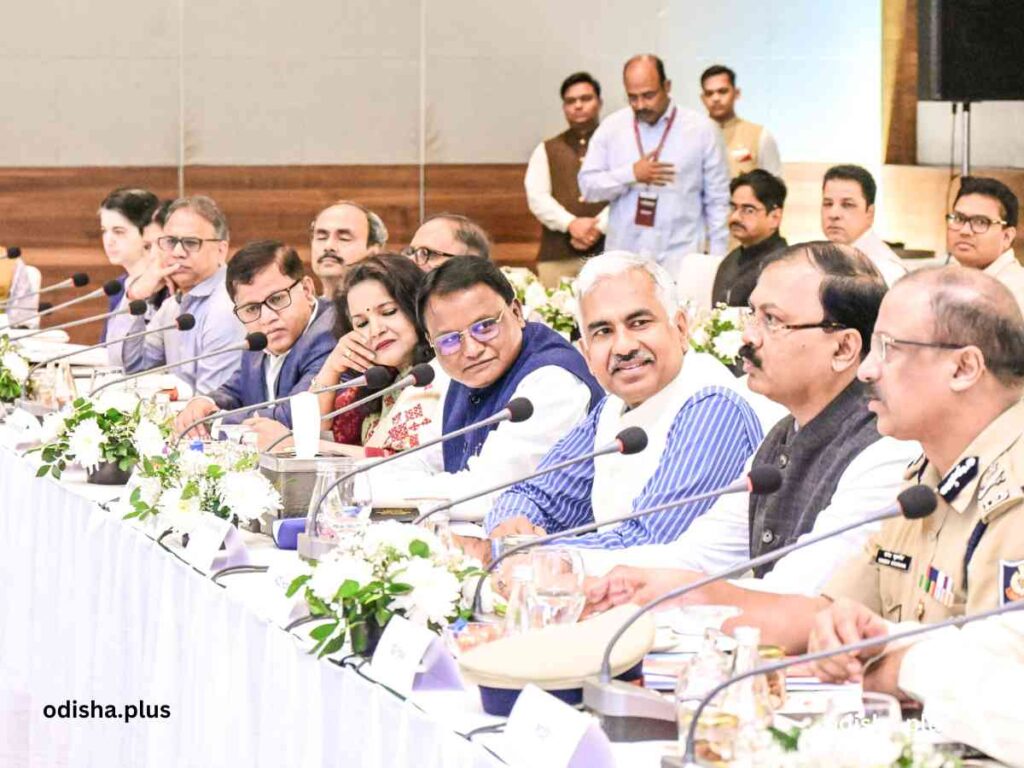Driven by strategic initiatives and a clear vision, Odisha is aiming to achieve developed state status by 2036
OdishaPlus Bureau

The government of Odisha formally requested Rs 12.59 lakh crores from the 16th Finance Commission on Thursday. The request includes an increase in the state’s allocation from the central divisible pool, proposing a rise from the current 41 percent to 50 percent.
Chief Minister Mohan Charan Majhi expressed the importance of this request during a meeting with the Finance Commission team, headed by Chairman Aravind Panagariya. He highlighted that this demand is vital for the state’s progress, particularly as Odisha aspires to achieve the status of a developed state by 2036, coinciding with its centenary celebration.
During a press conference, Panagariya noted that several states, including Odisha, have called for an increase in their share to 50 percent from the central divisible pool. The 16th Finance Commission is tasked with delivering its report to the President of India by October 2025, following consultations with 28 states and gathering input from various stakeholders.
The commission has conducted visits to various states and engaged in consultations. The majority of states have requested an increase in their share of the central pool to 50 percent, while only one or two states have sought a 45 percent increase, as stated by Panagariya.
He noted that certain states are also advocating for a share of the cess and surcharge levied by the central government. He clarified that the divisible pool consists of the portion of gross tax revenue allocated between the Centre and the states, whereas surcharges and cess are excluded from this pool.
Additionally, he indicated that the government of Odisha supports the inclusion of cess and surcharges collected by the Union government in the divisible pool for equitable distribution among the states.
Regarding the request for Special Category status for Odisha, which is prone to natural disasters, he remarked that this matter falls outside the jurisdiction of the Finance Commission. He explained that previously, the Planning Commission granted such status, but since the establishment of NITI Aayog, no state has received this designation.
The central government levies cess and surcharges, with all proceeds allocated directly to the Centre’s budget. However, the Odisha government has requested that these cess and surcharges be included in the divisible pool, allowing states to receive a portion of these funds. Additionally, the Odisha government has called for a reassessment of the weightage assigned to various criteria used in the distribution of divisible pool funds among states.
Majhi indicated that the Odisha government is seeking a total of Rs 12,59,148 crore for the state over the next five years, from 2026 to 2031. He detailed this request, specifying that the state is asking for Rs 9,88,422 crore to address the pre-devolution revenue deficit, Rs 1,10,434 crore for state-specific entities, Rs 1,00,036 crore for grants to local bodies, Rs 31,004 crore for the State Disaster Response Fund (SDRF), and Rs 29,252 crore for the State Disaster Mitigation Fund.
Furthermore, Majhi urged the Finance Commission to allocate a 100 percent grant for the SDRF from the Centre and to increase the state’s share of central tax from 4.528 percent to 4.964 percent. He noted that while the Centre currently covers 75 percent of the SDRF, the state is responsible for the remaining 25 percent. Given Odisha’s vulnerability to disasters such as cyclones and floods, the state has requested a full grant for the SDRF this time.
Majhi also requested a fixed allocation of 2 percent from the Centre’s revenue for urban local bodies and Panchayati Raj institutions.
In a memorandum submitted to the 16th Finance Commission, Naveen Patnaik, the president of the Opposition BJD and former chief minister, stated, “Due to the ongoing neglect by successive central governments, Odisha has not received its fair share from the central divisible pool of taxes about the revenue generated by the state.” A delegation from the ruling BJP also presented a memorandum to the 16th Finance Commission, highlighting that despite the state’s wealth in mineral resources, it has the lowest per capita income among the larger states.
The party advocated for an increase in the state’s share to 50 percent and requested a portion of the cess and surcharge collected by the Union government. The BJP memorandum emphasized that greater attention should be given to the financial chain, the demographics of Scheduled Castes and Scheduled Tribes, and forest areas when formulating recommendations for the state.
Furthermore, the BJP called for the announcement of a special package for tourism development, increased grants for irrigation, productivity, and climate-resilient agriculture, as well as enhanced support for the social and economic upliftment of the PVTG category, along with increased funding for skill development and vocational education.



























